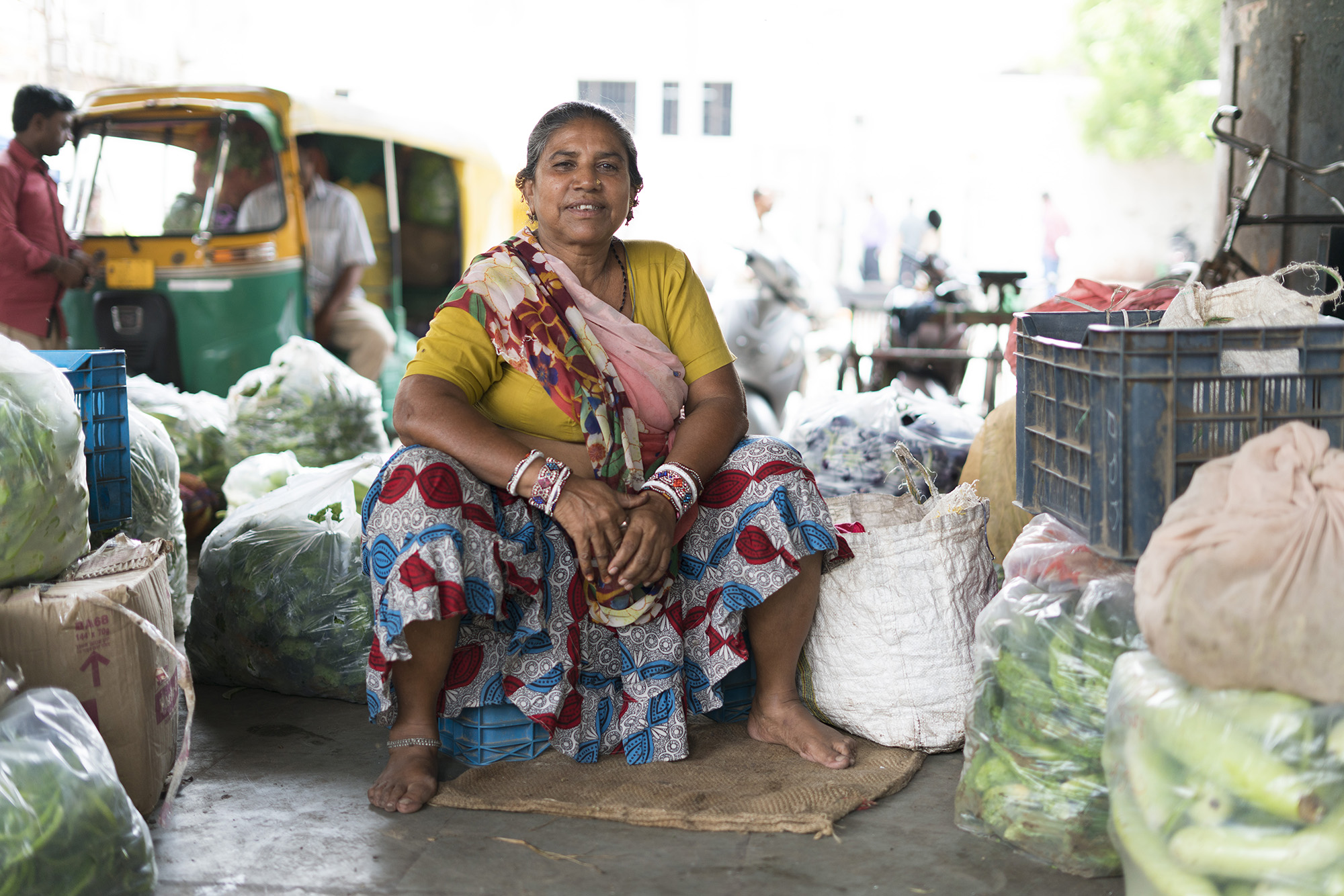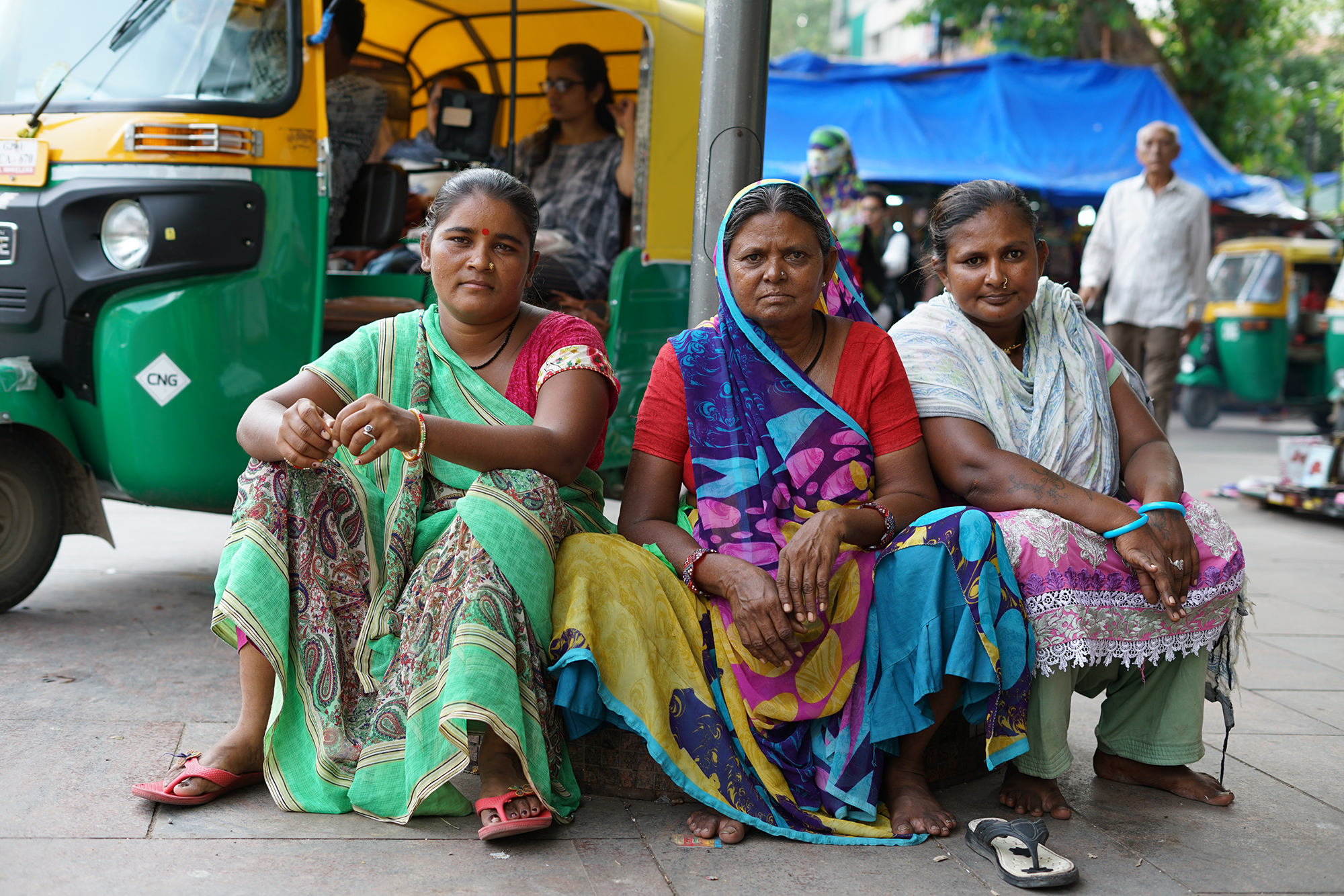This article was published more than 5 years ago.
The McKinsey Global Institute, the management consulting firm’s research arm, estimated in 2018 that women contribute only 18 percent to India’s gross domestic product (GDP), and that the country would be well-served by providing better—and more equal—opportunities to women workers.
After visiting India in March 2019, it quickly became clear to me that the idea that women are excluded from the marketplace and not contributing to the country’s economy is, at the same time, both accurate and wildly out of touch with the lived reality of most women in India.
Women workers in India are predominantly engaged in the informal sector or agricultural work, and thus are not necessarily included in official labor statistics. But far from having an insignificant impact, some economists believe that women workers are the true engine behind India’s fast-growing economy.
Whether it is female Dalit laborers working the field, urban-based female and trans sex workers, or Adivasi women in the tea plantations in Assam, women in India are displaying exemplary levels of economic self-reliance and contributing significantly to the country’s economic boom.
Government regulations of the labor market and related social policies, however, tell a very different story. For decades, Indian policy-making has excluded women in general, and marginalized others, specifically Dalit women, Adivasi women, Muslim women, and trans women, among others.
The ensuing policies do not consider the contributions or needs of women workers, with predictable consequences: women remain invisible as economic agents and unworthy of social schemes, creating a cycle of marginalization and exclusion. As a result, women—particularly Dalit or otherwise marginalized women—have borne the brunt of every economic downturn.

But community-based organizations like Sampada Grameen Mahila Sanstha (SANGRAM)—which the Fund has been proud to support since 2007—have been cultivating and supporting the inclusion and leadership of traditionally excluded women for years.
Founded in 1992 on the border of Maharashtra and Karnataka in southern India, SANGRAM used community organizing methods to prevent HIV and promote access to rights-based healthcare services for sex workers who bore the brunt of the HIV/AIDS epidemic in India.
Originally conceived of as a top-down “rescue-mission,” SANGRAM quickly flipped the model, focusing its advocacy, public awareness–raising efforts, and prevention work on the concrete needs of sex workers themselves: how to negotiate safer sex, solutions to exploitation by brothel owners, police, and clients, and issues of job security, just to mention a few.
While SANGRAM is still focused on providing access to healthcare, the organization has broadened its purview to include many groups who often are ignored in health policies or, worse, actively excluded from government protections, including migrant workers, truck drivers, youth, men who have sex with men, and people living with HIV/AIDS.
SANGRAM has mobilized female, male, and transgender sex workers, rural women facing domestic violence, and, most recently, Muslim women to form their own self-help and advocacy groups. Some of these groups have become independent organizations, steadily enhancing the intersectionality and diversity of the local human rights movement.
Over the past years, these self-help groups have not only brought attention to the plight of marginalized communities within the general public, they have also reduced the level of police violence against sex workers and improved access to government programs for Muslim families in the state of Maharashtra.
When I visited SANGRAM in March 2019, members of its male and trans sex worker collective, MUSKAN, told me their efforts to raise awareness with local police departments about India’s 2018 Supreme Court decision to decriminalize sodomy had already led to fewer episodes of police violence.
Moreover, MUSKAN members felt safer going to the police if family members or clients stole from them, and they had experienced less violence and name-calling on the street—a huge win when your livelihood depends on being safe in the public space.

In a country as massive as India—in terms of both territory and population—transformational power comes almost exclusively from collective action. Two Fund-supported groups, legal advocates Nazdeek and the nongovernmental organization Promotion and Advancement of Justice, Harmony and Rights of Adivasis (PAJHRA), have capitalized on the benefits of solidarity by supporting the mass-membership organization All Adivasi Women Association of Assam (AAWA), which promotes the labor and health rights of women tea workers in the northern state of Assam.
After discovering that maternal mortality and morbidity rates were particularly high among tea farmers, Nazdeek and PAJHRA banded together to push the government to provide them much needed nutrition and healthcare, with positive effects on the mortality and morbidity statistics. Propelled by female Adivasi leadership, this process has helped women workers to see themselves more clearly as contributors to the economy and, by realizing their value, to overcome internalized feelings of exclusion and worthlessness.
None of these victories diminish the fact that plantation workers, sex workers, trans persons, migrant workers, and resource-poor Muslim women—to name just a few of India’s most vulnerable or marginalized populations—still face enormous inequity. But the significant successes of organizations like SANGRAM, Nazdeek, and PAJHRA demonstrate the need to root community-based organizing in the lived experiences of those most affected.


